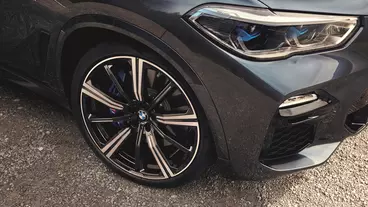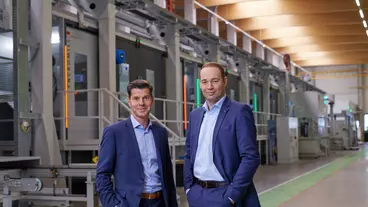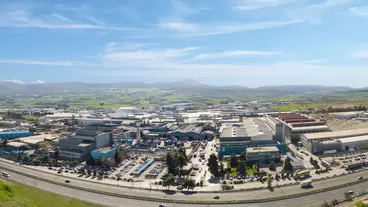BMW to use sustainable aluminium wheels from 2024

BMW is increasingly focusing on sustainability and intends to use aluminium wheels produced 100 % with ‘green’ electricity throughout the group from 2024.
For the automaker, this is another step towards its goal of creating the most sustainable supply chain in the automotive industry. The transition applies, in particular, to the energy-intensive electrolysis used in producing primary aluminium and to the wheel-casting process. To this end, corresponding agreements have been reached with all BMW Group wheel suppliers.
CO2 savings of up to 500,000 t annually
Up until now, wheels have accounted for about 5 % of supply chain CO2 emissions. Transitioning to more sustainable production that relies on green power will reduce these emissions by more than half. The BMW Group procures about 10m light-alloy wheels a year; 95 % of these are made from cast aluminium.
Through independent audits, the automaker can ensure sustainable use of aluminium by its contracted producers, saving up to 500,000 t of CO2 annually.
Suppliers are obliged to use ‘green’ power
“Green power is one of the biggest levers for reducing CO2 emissions in our supply chain. We have already signed more than 400 contracts with our suppliers, including suppliers of wheels and aluminium, requiring them to use green power,” says Joachim Post, board member at BMW AG and responsible for Purchasing and Supplier Network.
Aluminium has excellent recycling properties, making it easier to melt down old wheels as part of the circular economy. This eliminates the need for energy-intensive electrolysis in the initial production of the metal. At the same time, the recycling material must also meet BMW’s premium requirements for quality, design, safety and mechanical properties.
The Mini brand will become a pioneer in this field in 2023, when it will begin using light-alloy cast wheels made from 70 % recycling aluminium in the new generation of the Countryman model. The combination of 100 % green power for production and 70 % secondary raw material content can reduce CO2 emissions by up to 80 %, compared to conventional manufacturing processes.
<strong> ASI Certification
The BMW Group has been actively involved for many years in international initiatives focused on standardizing raw material extraction. These include the Aluminium Stewardship Initiative (ASI). In December 2019 ASI already certified BMW’s light metal foundry in Landshut for its sustainable use of aluminium. Many of the automaker’s wheel suppliers have already joined ASI and are making an important contribution to creating an environmentally and socially responsible aluminium value chain in this way.
Transitioning to 100 % green power for production of cast aluminium wheels is another step towards reducing CO2 emissions in the BMW Group supplier network. The aim is to reduce emissions throughout the supply chain by 20 % from 2019 levels by 2030. Systematically increasing the percentage of recycling aluminium through this process makes a further contribution to sustainability.
Solar Aluminium from Dubai
Since 2021, the BMW Group has sourced aluminium from the United Arab Emirates manufactured exclusively using electricity obtained from solar power. The aluminium produced in Dubai is processed in BMW’s light metal foundry in Landshut, Germany, where it is used to manufacture body and drive train components. The 43,000 t of solar aluminium sourced in this way supply almost half the annual requirements of the Landshut light metal foundry.

One of the HAI Group's declared aims is to continuously increase the sustainability of aluminium products through constant innovation.

The EU has decided to extend until 31 March 2025 the suspension of its rebalancing tariffs on US products in the context of the steel and aluminium dispute.

Elval has placed an order with SMS Group for the delivery of its Viridis Energy & Sustainability Suite for its aluminium rolling mill in Oinofyta, Greece.
